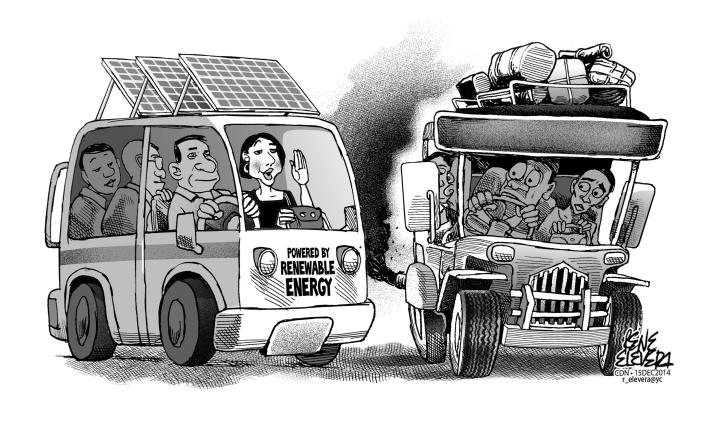
The association’s president Jolito Flores said their proposal consists of reducing the mini bus fare rate from P6 to P5 for the first five kilometers and P1 from P1.20 for every succeeding kilometer.
It may not be much but if one travels from Cebu City to any route covered by the mini buses, it will result in significant savings especially during the holiday season.
But as much as one would like to commend the bus operators for their initiative, the fare rate reduction is borne more out of international market forces rather than self-imposed generosity.
Oil companies are said to be imposing hefty cuts on fuel prices after the US, a leading global consumer, experienced an oil shale boom which reduced its dependence on good old Middle Eastern oil.
Compounding the reduced demand for oil is the slowdown in industries dependent on petroleum, and the reduced demand for oil exports from other leading producers like Russia. This helps explain while gasoline prices are on the decline since the past few weeks.
It’s too early to celebrate, though.
Analysts said it would take sometime before the lower fuel prices reach the mass market next year. But it is happening and the end consumers will be all the better for it.
Factor that had not been acknowledged is the continuing development of alternative clean energy sources like solar, geothermal, hydro and wind power.
For quite sometime, leading consumers of oil like the US have spent significant funding to pursue green energy, a reality that had been driven home by the still prevalent threat of global warming and climate change.
There were reports that there may be a reduction in global pollution due to improvements in the world’s ozone layer which protects the Earth from harmful radiation.
That may be good news but don’t tell that to environmental groups who insist on wiping out what they call antiquated destructive fuels that harm the ecosystem and cause supertyphoons and other worsening weather phenomena.
There’s still a need for the national government to pursue with fervor and dedication alternative energy sources that can supply household needs, somehow answer the supply needs of industries and lessen the burden on forests and the earth which had been groaning under the growing, massive weight of unabated, unregulated industrialization.